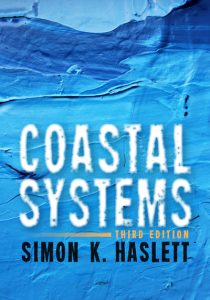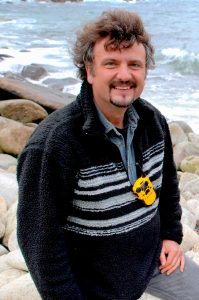
The publication of the third edition of Coastal Systems in 2016 by the University of Wales Press was timed so that, as I outline in my preface to the book, the edition included the most up-to-date information from the latest report of the Intergovernmental Panel on Climate Change (IPCC) published in 2014. Indeed, the publication of each edition of Coastal Systems has been scheduled to include data from the most recent IPCC report. In this way students and other readers are assured that Coastal Systems remains current, up-to-date, and relevant.
Even since the publication of the 2016 edition, however, significant impacts of climate change on coastlines have been witnessed and have affected millions of people in communities worldwide, especially from sea-level rise and increased storminess, unfortunately leading to climate refugees. This is occurring globally and Wales may see, for the first time in recent history, a town being evacuated in the near future because of climate-induced coastal change.
The study of coasts is now more important than ever as an important contribution to climate change education. It is needed to better inform society on how coasts behave and react to changes in external forcing driven by climate change and other forms of human activity, and what communities may do in response, and how to lessen and/or mitigate against the impacts wherever possible.
I hope that Coastal Systems will continue to be an accessible textbook and reference source for learners at a number of levels. When I designed the structure of the book, over twenty years ago now, I wanted it to remain current and to be of use to learners studying high school courses, such as A Levels, through to undergraduate students and right up to master’s and doctoral levels. For this reason, there are two different sections at the end of each chapter to guide students at these different levels to appropriate literature for further reading, as well as references cited within the text.
Also, case studies have been updated between editions to include recent events: for example, with regards to tsunami events, the first edition explored the Papua New Guinea tsunami of 1998; the second edition referred to the 2004 Indian Ocean tsunami; and the third edition referred to the Japan tsunami of 2011. Furthermore, after publication of the second edition, I started a YouTube Channel with now almost 50 Coastal Systems videos, which are listed in an appendix of the third edition to provide further resources for students to utilise. I have also created a Facebook page to support learning and share updates.

It is pleasing to see that the Coastal Systems textbook and videos have been used extensively to support A Level syllabuses, including by the AQA, Cambridge International, and Pearson Edexcel. And, in higher education, a quick web search shows that Coastal Systems has appeared on the reading lists of coastal modules and units at many universities, including the University of Auckland, Bangor University, University of Brighton, University of Dundee, Edith Cowan University, University of Exeter, University of Manchester, University of New South Wales, Pennsylvania State University, University of Portsmouth, University of South Carolina, University of Wisconsin-Madison and the University of York.
The next report of the IPCC, the Sixth Assessment Report, is expected to be published in 2022. It is hoped that a fourth edition of Coastal Systems may be published thereafter to continue to provide successive generations of students with an up-to-date text to support their studies into one of the most vulnerable and most threatening environments to humans on earth, so that they may more fully understand coasts, the issues that affect them, and be able to help better manage the changing human-coast interaction into the future.
Simon Haslett (@ProfSHaslett) is Professor of Physical Geography at the University of Wales and the University of Wales Trinity Saint David, where he is Pro Vice-Chancellor (International and Enhancement).


